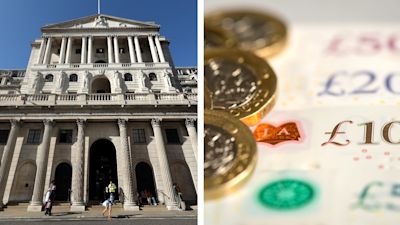Why the Bank of England should say sorry, writes Robert Peston

Months ago I said the Bank of England would face a barrage of criticism and a challenge to its independence for failing to raise interest rates enough last year during the post-Covid economic rebound and then for putting them up big time now as we head into recession.
So it has proved. And by the way this does not mean that Bank independence has failed or that allowing politicians greater sway over how much and when interests rise would be better (it probably wouldn’t be).
Nor does it mean Liz Truss would be right to review the Bank’s mandate, or the target the government obliges it to meet (though there may be a case for this).
What it does mean is that the Bank should stop pleading that its failure to call the inflationary turn early enough is irrelevant, because the big contributor to our woes is Vladimir Putin’s wartime decision to limit the flow of gas.
That may be true, but it does not disguise that the Bank made a mistake last year in relation to the sole big thing it is supposed to do.
And when institutions central to our welfare make mistakes, the best thing for them to do - if they want to retain essential public confidence - is to explain how they made the mistake, how they’ll learn from it, and say sorry.
As I say, it is not obvious that government needs to force fundamental change on the Bank.
But if the Bank is incapable of getting out of its Bart Simpson 'it wasn’t me' mode, the new leader of the Tory Party and new PM - whoever that may be - will sense an opportunity to deflect from the government’s own mistakes and will come for it.
Want a quick and expert briefing on the biggest news stories? Listen to our latest podcasts to find out What You Need To Know